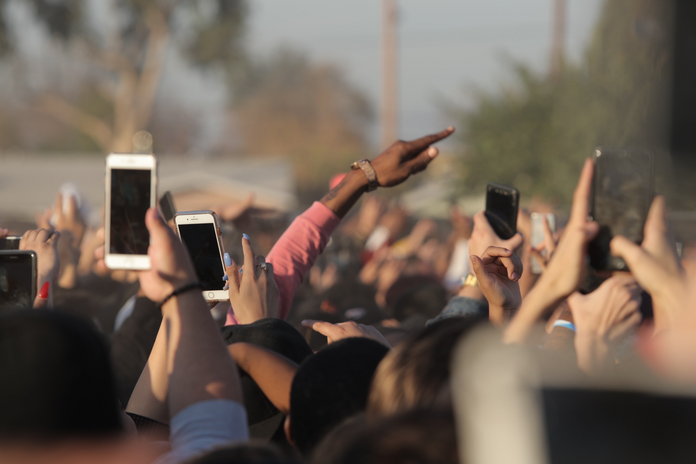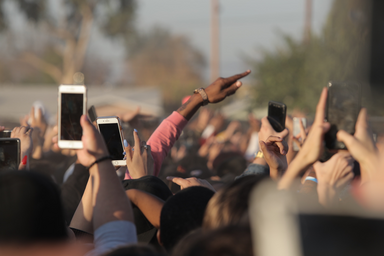Edited by Carol Eugene Park
Social media amplifies humanity by providing a kaleidoscope of emotions, life events, conversations, opinions, and many more bizarre things. It’s never too dull, often entertaining, but inevitably addictive. So what lures us into putting our lives out online? Narcissism, vanity, or perhaps wanting to get something off our chest? The Web is a sticky atmosphere that entices people as preys just to leave them hanging and awaited to enter a path they might not be pleased with. If you, like many other people including myself, use social media and generally agree that it is a vital aspect of technology, there is a significant likelihood that you may not be able to permanently withdraw yourself from the world of Web.
Don’t get me wrong here! There is absolutely nothing bad about social media platforms. In fact, it’s a great way of meeting new people from around the world, connecting with your loved ones from afar within a matter of seconds, expanding your business and marketing strategies, gaining knowledge of main current events and even expressing your talents. It’s also a great place for virtual democracy; however, it’s the routine which kills us and makes us feel unproductive. Our screen consumes a vital proportion of our attention as we scroll through our feeds while we remain oblivious to the amount of time that is being wasted. As a matter of fact, we fear to remain excluded from our smartphones for even a few minutes to such an extent that we bring our phones with ourselves into the washroom (don’t you dare deny that!).
Social media has brought us all together– well, maybe a little too close. Engulfed with opinion-orientated content, people are quick to comment without verifying and judge without reading. It’s easier than ever to dive into Facebook, Twitter, Snapchat, and Instagram and experience a wave of likes, comments, reacts, tags, retweets, and messages just with a tap of a thumb or a few keystrokes. Given that a huge proportion of our interaction now takes place online, we frequently detach ourselves from real intimacy while chasing for digital affirmation. Additionally, when it comes to uploading a random picture with an obscure caption, evoking happiness, anger, or just plain absurdity, it seems that this is the most important activity of our days since our mind is focused in pleasing the mass. Once that picture gets 100 likes or more, it turns out that this is all the validation we need. Often times we also spend too much of our attention devoting wealthy and seemingly perfect strangers on Instagram that we begin to compare our lives and appearances with theirs only to fuel our dreadful insecurities.
According to an interview with GQ, notable American stand-up comedian Aziz Ansari abandoned social media after the success of season two of his Netflix hit, Master of None. He deleted the Internet browser from his phone and laptop and also stopped using Twitter, Instagram, and even his email. Whenever he enters a cab, his phone remains in his pocket as he simply sits there and just thinks. In fact, he reads a book when he gets home, instead of “looking at websites for an hour and half, checking to see if there’s a new thing.” When GQ journalist Mark Anthony Green interviewed Ansari and asked the reason behind the withdrawal, Ansari replied:
“Whenever you check for a new post on Instagram or whenever you go on The New York Times to see if there’s a new thing, it’s not even about the content. It’s just about seeing a new thing. You get addicted to that feeling. You’re not going to be able to control yourself. So the only way to fight that is to take yourself out of the equation and remove all these things. What happens is, eventually you forget about it. You don’t care anymore. When I first took the browser off my phone, I’m like, [gasp] How am I gonna look stuff up? But most of the shit you look up, it’s not stuff you need to know. All those websites you read while you’re in a cab, you don’t need to look at any of that stuff. It’s better to just sit and be in your own head for a minute. I wanted to stop that thing where I get home and look at websites for an hour and a half, checking to see if there’s a new thing. And read a book instead. I’ve been doing it for a couple months, and it’s worked. I’m reading, like, three books right now. I’m putting something in my mind. It feels so much better than just reading the Internet and not remembering anything.”
In disbelief, Green asked, “What about important news and politics?” Ansari calmly replied, “Everything is fine! I’m not out of the loop on anything. Like, if something real is going down, I’ll find out about it.”
Throughout this interview, Ansari proves that escaping the clustered chatter of the online world can support deep insight and creative achievement. After all, it seems like there is a lot more work required to satisfy the human need for validation and connection rather than human interaction. But how long can one live without persistent digital distraction?
Social media works like a drug- you can not leave it easily. At certain times I would spend far too much time on various platforms including Facebook, Instagram, Twitter, and Snapchat. I was losing concentration and also dignity after seeing certain people’s successes displayed on my screen. Hence I refrained myself from my Facebook account and limited my other social media activities. It was quite problematic at first because I certainly had a severe FOMO (Fear of Missing Out). However I kept reminding myself, “Why do I care?”
Why do I care what someone is having for lunch? Why do I care which mainstream fictional character resembles my zodiac? Why do I care about arguing over a trend I only understand superficially? Why do I care about the number of likes and comments I receive under a picture that nowhere near resembles my face in reality?
These questions drove me to avoid using these apps for about a month just so I could concentrate on my own wellbeing. Surprisingly, I am very glad that a lot has been improved ever since I left that phase. I was able to focus on many of my tasks and responsibilities with full concentration while completing just about any work without always having to check my phone every ten minutes or so. With the extra time in my hands, I was able to participate in so many activities. In fact I read everyday during the night instead of obsessively refreshing my screen to see if anyone commented on my new profile picture. I enhanced my verbal communication skills and met many broadminded individuals, which allowed me to strengthen my networking tactics. In addition to that, I listened to intuitive podcasts rather than watching strange viral videos popping up on my explore page. This expanded my learning comprehension as I became aware of so many things that my naive mind wasn’t able to grasp onto previously.
Without the daily distraction of that internal urge to go online and observe what is happening in every single app, I find it much more easier to concentrate and get a lot of work done each day. I had myself partially rehabilitated without having to be obsessed with capturing the moments that are worth living instead of actually living them. This choice made me realize that in most cases, social media provides us with instant gratification rewards for doing next to nothing of value. When those rewards are no longer redeemable, we have to work harder to gain those same feelings.
Overall, I conclude that my choice of refraining from social media has given me more time for myself and also a peace of mind. Since I was comparatively less distracted, it allowed me to do certain tasks like planning my goals and pursuing a hobby I couldn’t get time for earlier- such as sketching. The benefits were immediately apparent as my mind was able to wander and explore freely rather than being suck down a ceaseless stream of unnecessary information. Consciously or unconsciously we are affected by social media and taking some time off would definitely lead to a peace of mind. Sure, social media can certainly be a great way to stay in touch with old friends or family however cutting ties with the internet can work wonders for your wellbeing. After all, your worth is not measured in likes, comments, retweets, shares, or followers but rather the nondigital validation you provide for yourself.


